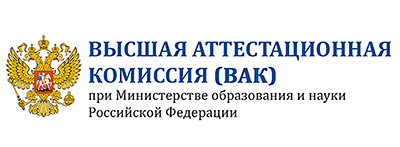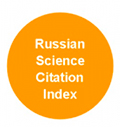«Russian demographic statistics ceases to meet world standards...»
From the experience of domestic demographers' struggle against legislative and bureaucratic arbitrariness with regard to the system of current accounting of demographic events in the late 1990s.
Abstract
The archive document published is a letter of leading Russian social scientists sent to President of the Russian Federation B.N. Yeltsin, Chairman of the Government of the Russian Federation E.M. Primakov, Chairman of the Federation Council of the Federal Assembly of the Russian Federation E.S. Stroev, and Chairman of the State Duma of the Federal Assembly of the Russian Federation G.N. Seleznev, which notes the unsatisfactory state of statistical monitoring of demographic events in the country arising after the adoption of the Federal Law “On Acts of Civil Status” at the end of 1997.
The letter, prepared in 1999, expressed concerns about the consequences for government administration and scientific research of an ill-conceived decision to significantly revise the program for the collection, statistical processing and analysis of basic demographic information (vital records). In accordance with the new law, a number of characteristics of births, deaths, marriages and divorces were excluded from the vital records as “not having legal significance”; the procedure for statistical recording was also changed.
Unfortunately, in those years, demographers and statisticians failed to achieve a revision of the main provisions of the criticized law and to defend the program of statistical observation of demographic processes that had developed by the early 1990s and met internationally accepted standards. Subsequently, the unsuccessful law, as experts warned, had to be revised many times. Eventually, Russian vital statistics returned to normal, but as a result of legislative and bureaucratic arbitrariness, the opportunity to study live births by birth order, marriages and divorces by detailed ages, and all demographic events in the context of important socio-economic characteristics such as educational, occupational, migration status and some others was lost for more than a decade.
Downloads
References
Вишневский А. (2009). Андрей Гаврилович Волков. Штрихи к биографии. Демоскоп Weekly, 385-386 (17-30 августа 2009). https://www.demoscope.ru/weekly/2009/0385/nauka01.php
Захаров С. В. (2023). Из истории Всероссийской переписи населения 2002 г.: нужна ли нам такая Государственная комиссия? Демографическое обозрение,10(1), 146-150. https://doi.org/10.17323/demreview.v10i1.17264
Население России (2007). А.Г. Вишневский (Отв. ред.) (2007) Население России 2005. Тринадцатый ежегодный демографический доклад. Москва: ГУ ВШЭ. https://www.demoscope.ru/weekly/knigi/ns_r05/sod_r.html
Население России (2013). А.Г. Вишневский (Отв. ред.) (2013) Население России 2010-2011. Восемнадцатый - девятнадцатый ежегодный демографический доклад. Москва: Изд. дом ВШЭ. https://www.demoscope.ru/weekly/knigi/ns_r10_11/sod_r.html
Сивушков Е.Б. (1994). Формулировка вопросов в первичных документах текущего учета демографических событий в России (во вторых экземплярах книг записей актов гражданского состояния). В Г.Г. Меликьян (гл. ред.) Народонаселение: энциклопедический словарь (сс. 589-602). Москва: Большая Российская энциклопедия.
Zeman K. (2023). Human Fertility Database documentation: France. Rostock (Germany): Max Planck Institute for Demographic Research. https://www.humanfertility.org/File/GetDocumentFree/Docs/FRATNP/FRATNPcom.pdf




















